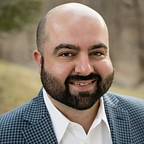DEI + Power = Organizational Justice
Your favorite Diversity, Equity, and Inclusion (DEI) practitioners are exhausted. In addition to the field being extremely labor intensive and grueling, it requires one to take the compendium of human tragedy, package it, commodify it, and try to sell it as a “case” for why it’s important, why we should all care. Years of that is enough to make anyone feel like they are stuck in a perpetual out-of-body state.
To add to it, we’re reading article upon article about how DEI has become a mirror, a simulation, of its originally intended purpose. Many of us entered this area not only as an intellectual pursuit, but because we’ve had workplace experiences where we were at the receiving end of someone’s abusive power. So, it’s exponentially hurtful when we read data showing the long-term inefficacy of DEI work.
As a DEI practitioner with several years of experience in public, private, and nonprofit institutions, I have designed and implemented interventions with the goal of changing workplace cultures to remove the harms and barriers that so many communities struggle with. I have come to be quite good at energizing organizations into understanding why and how systems of oppression must be defeated and then building capacity to do so. However, time and time again, I noticed that these inspiring moments were fleeting, that organizations will always revert back to how they are designed, which is with white supremacist capitalism at the core.
And the culprit is always the same thing, power, particularly how power is distributed.
Discussions around power have become quite popular in the DEI space. We really enjoy discussing it, but that’s where it ends. We encourage leaders to be mindful of their power, to foster spaces where power is used for good. But we’ve designed organizations to be rigid bureaucracies where power is codified and structured in such ways that taking a more progressive approach to workplace power relations is nearly impossible. No matter how elegant the design of your cultural interventions (e.g., psychological safety, bias mitigation, etc.), the system always wins. Cultural change will always be most influenced by systemic (organizational) design.
But what if instead of just learning and having discussions about power for intellectual enrichment, we also had the tools to truly interrogate it? What if we could ensure that power isn’t formalized into these rigid, bureaucratic hierarchies that almost always favors racial capitalism? What if we could design for liberation?
That is exactly why I have taken my practice, Critical Equity Consulting, in a different direction. I’m no longer referring to myself as a DEI practitioner. I now call myself a practitioner of Organizational Justice. WhileI know that organizational justice is a specific field devoted to studying perceptions of fairness in the workplace, I am hoping my contribution will be to add the element of systemic and structural change to actually achieve true fairness, to achieve justice.
It is for this reason that I have begun to research more liberatory models of organizational design, namely those employed by self-managed, flat, democratic, organic, decentralized organizations. Organizational justice (my model of it at least) is about fundamentally interrogating the very idea of power in the workplace, and then figuring out how to redistribute it to achieve better outcomes for all. And let’s face it, organizational justice sounds much cleaner than the word salad of different ways we are referring to the field now (DEIB, DEIA, JEDI, etc.). Organizational justice, as we practitioners can and should mold it, can encompass all of those additional terms while emphasizing the core aim, justice.
While I’m still in the process of ironing out a specific model for organizational justice (and I don’t know if I ever will because I am enjoying the dynamism of it all), it’s futile to go about it alone. Marrying the world’s of democratized power and DEI is no task for a single person or company, and I hope that you as DEI practitioners can join me in developing what organizational justice looks like for the benefit of all!
Critical Equity Consulting, LLC, was developed with the goal of centering equity and justice in DEI. We are a boutique, Virginia-based consultancy that uses a systems-oriented approach to probe critically into daily operations in order to bring about revolutionary progress to your organization. Visit us at www.criticalequity.com!
